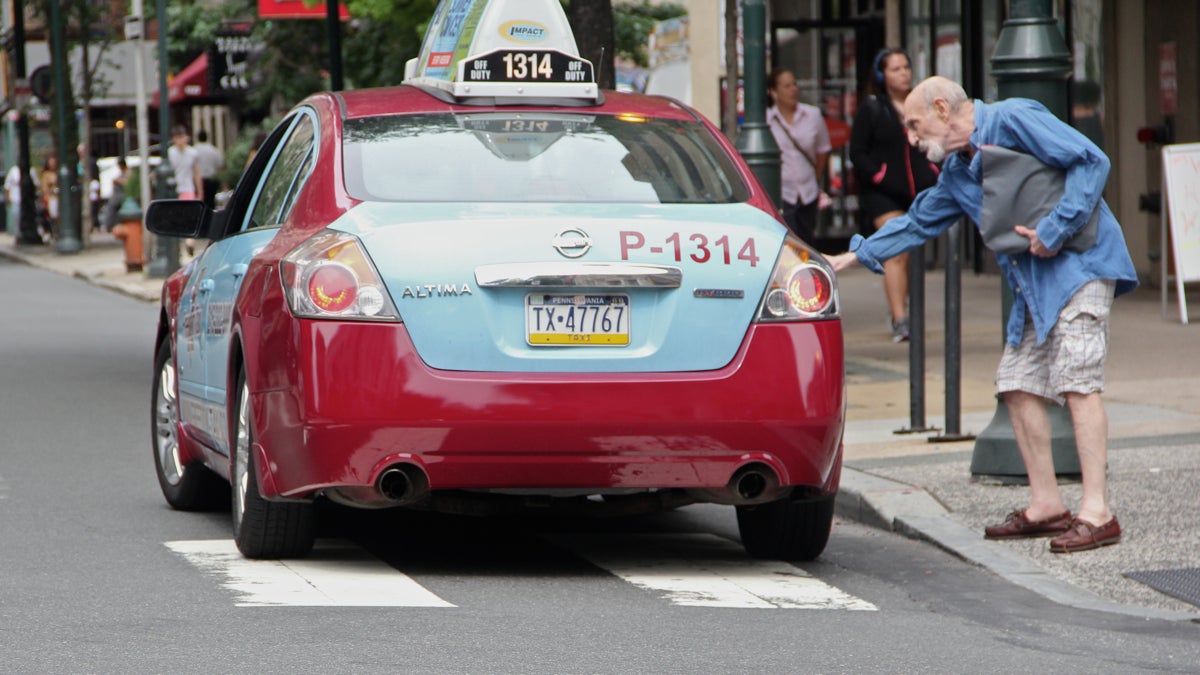Philly taxicab drivers down, but not out, after losing federal appeal against Uber
Despite taking a bruising legal hit in federal court this week, some Philadelphia cabbies say they’re not worried ride-hailing companies like Uber will drive them out of town.

A group of taxicab companies hoped the U.S. Court of Appeals for the Third Circuit would rule that Uber was violating anti-trust laws by flooding the market with drivers. Instead, the panel sided with Uber. (Emma Lee/WHYY)
Despite taking a bruising legal hit in federal court this week, some Philadelphia cabbies say they’re not worried Uber and other ride-hailing companies will drive them out of town anytime soon.
A group of taxicab companies hoped the U.S. Court of Appeals for the 3rd Circuit would rule that Uber was violating antitrust laws by flooding the market with drivers. Instead, the panel sided with Uber, saying the San Francisco-based company hasn’t tried to form a monopoly, but “enhanced competition.”
“Running a business with greater economic efficiency is to be encouraged because that often translates to enhanced competition among market players, better products and lower prices for consumers,” wrote Judge Marjorie Rendell.
Lawyers representing the taxicab companies that sued Uber did not immediately return requests for comment.
Uber declined comment.
Uber, known as a transportation network company or TNC, started operating in Philadelphia in 2014.
It’s estimated 20,000 Uber drivers work in the Philadelphia area compared with 1,600 taxicabs in the city.
Since Uber hit the streets, taxi ridership is down; there are fewer cabs on the street; and the value of once-coveted medallions – the required operating licenses for taxis – has plummeted from more than $500,000 to roughly $50,000. That’s putting many cab operators into debt and pumping the brakes on some retirement plans.
Still, Danielle Friedman, general counsel for taxicab dispatcher 215 Get-A-Cab, isn’t worried she’ll be out of a job.
“At this point, rates are very comparable. And certainly when surge pricing is in effect, taxicabs are cheaper than TNCs,” said Friedman, adding that some people are not comfortable handing over their bank account information required to use the app-based service.
Taxicabs also have staying power because they can be more convenient for customers, according to experts.
“There’s at least a certain level of impulse buying of cab services. You see a cab, and you decide you’re going to take it,” said Richard Voith, president of Econsult Solutions, an economic consulting firm in the city.
WHYY is your source for fact-based, in-depth journalism and information. As a nonprofit organization, we rely on financial support from readers like you. Please give today.



